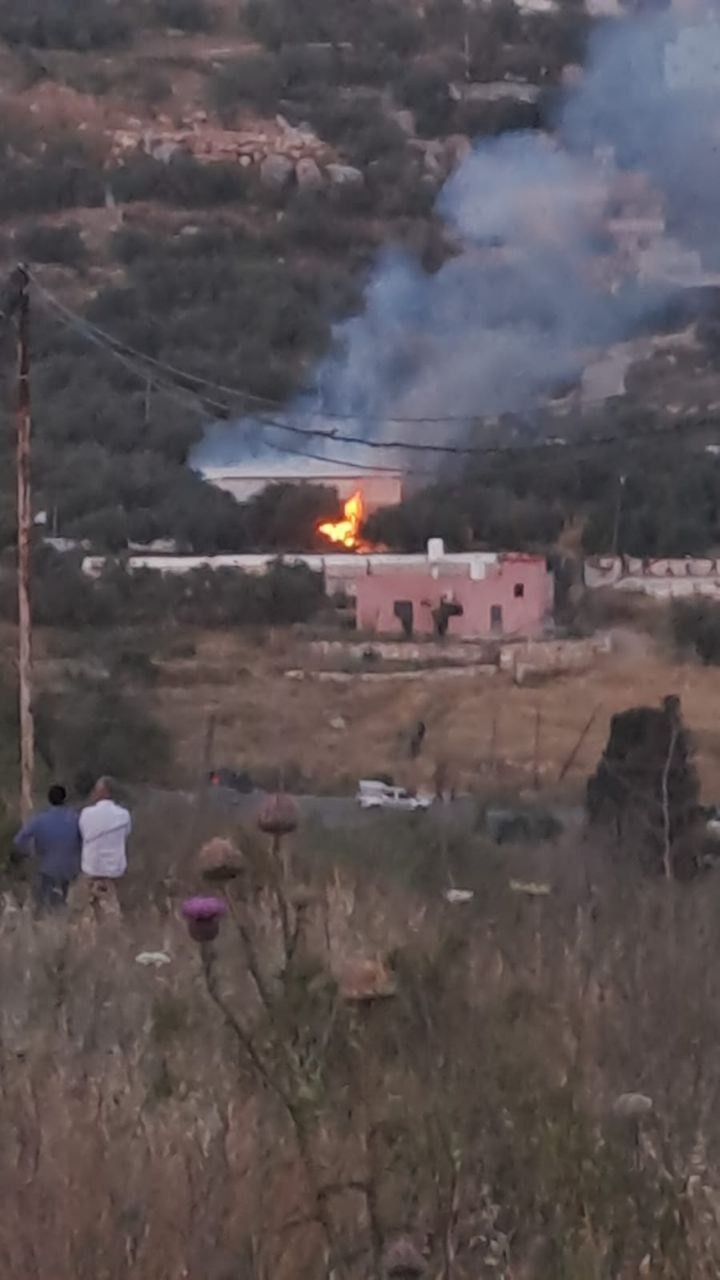Israeli extreme settlers set fire On Thursday, May 25, to the village of Burqa in the occupied West Bank, igniting a massive fire in the farmlands.
From their establishment to their continued expansion through outposts and satellite neighbourhoods, Israeli settlements exteriorize harassment and violence against Palestinians in the path of their expansion.
Violence, directed at Palestinian persons and property, is inherent to Israeli settlements.
Earlier this week, the European Union diplomats visited the Palestinian village of Burqa, where they heard about repeated attacks by settlers on residents from nearby settlement outposts, including the Homesh outpost.
Settlements are illegal under international humanitarian law as they violate Article 49 of the Fourth Geneva Convention.
The loss of land, exposure to violence and/or access restrictions, along with the application of a restrictive planning regime, have generated a coercive environment placing many of these Palestinian communities at risk of forcible transfer.
The official seizure of land for the establishment and expansion of Israeli settlements, alongside the takeover of land by settler groups, have deprived Palestinians of their property and reduced the space available for them to sustain their livelihoods.
In some areas, this has also affected the access of Palestinians to water sources used for irrigation, livestock and domestic consumption. The loss of land and water resources has increased the vulnerability of rural communities, generating the need for humanitarian interventions, including food and cash assistance.
About 250 Israeli settlements have been established across the occupied West Bank since 1967, some of them without the formal approval of the Israeli authorities (“outposts”), but with their support.
Some 611,000 Israelis currently live in settlements, two-thirds of them in Area C and one-third in East Jerusalem.
Shortlink for this post: https://daysofpalestine.ps/?p=42006







